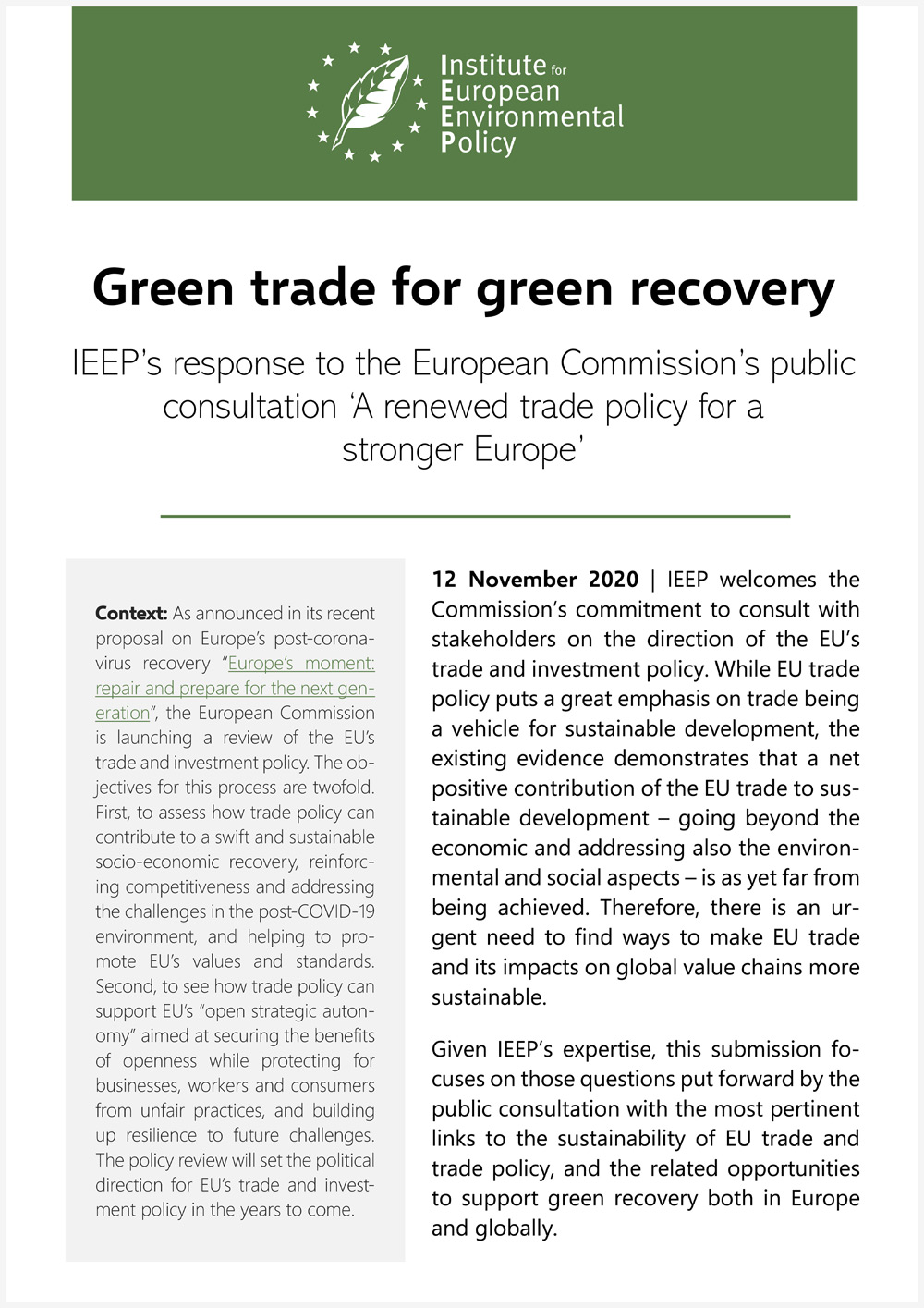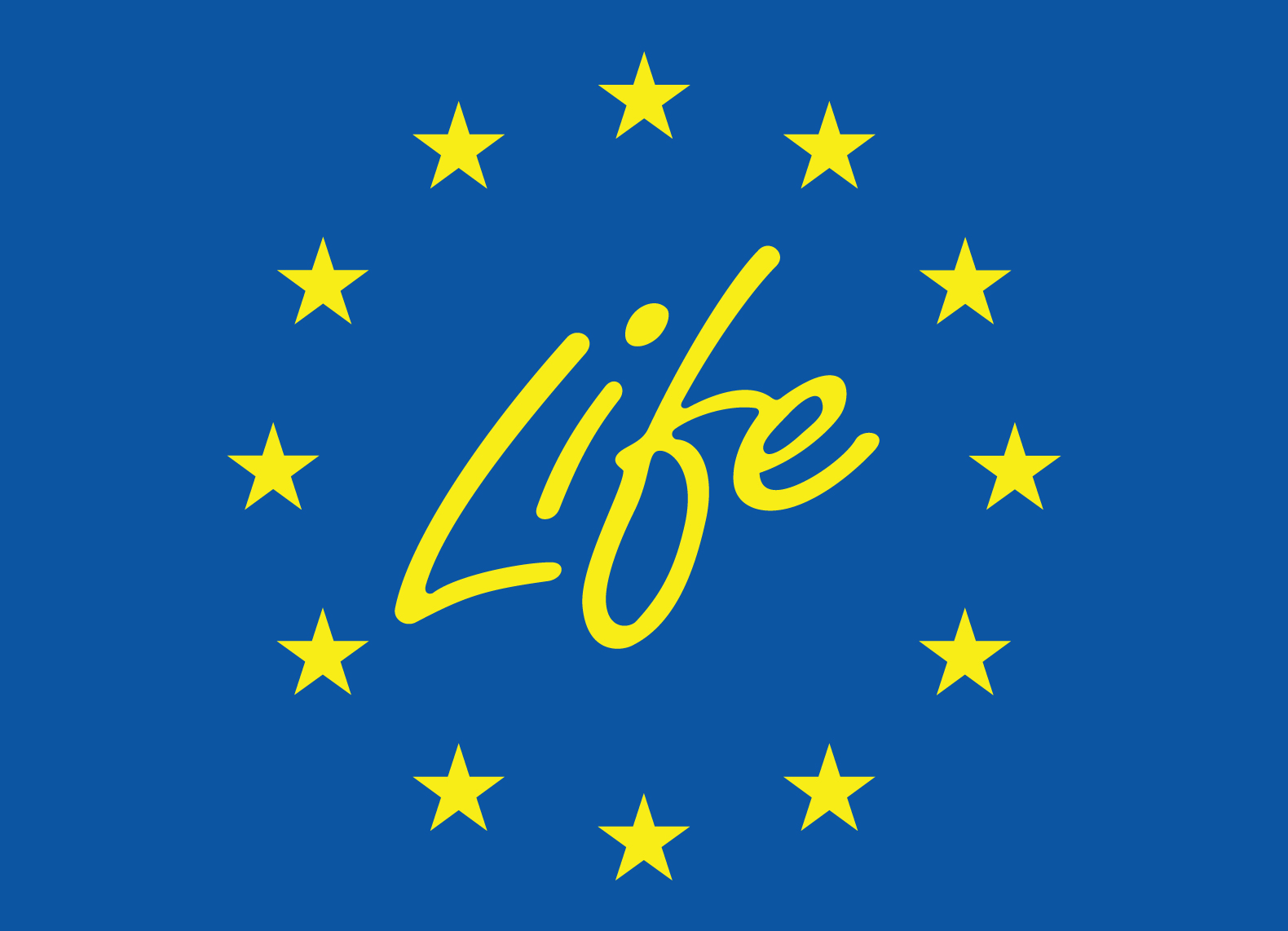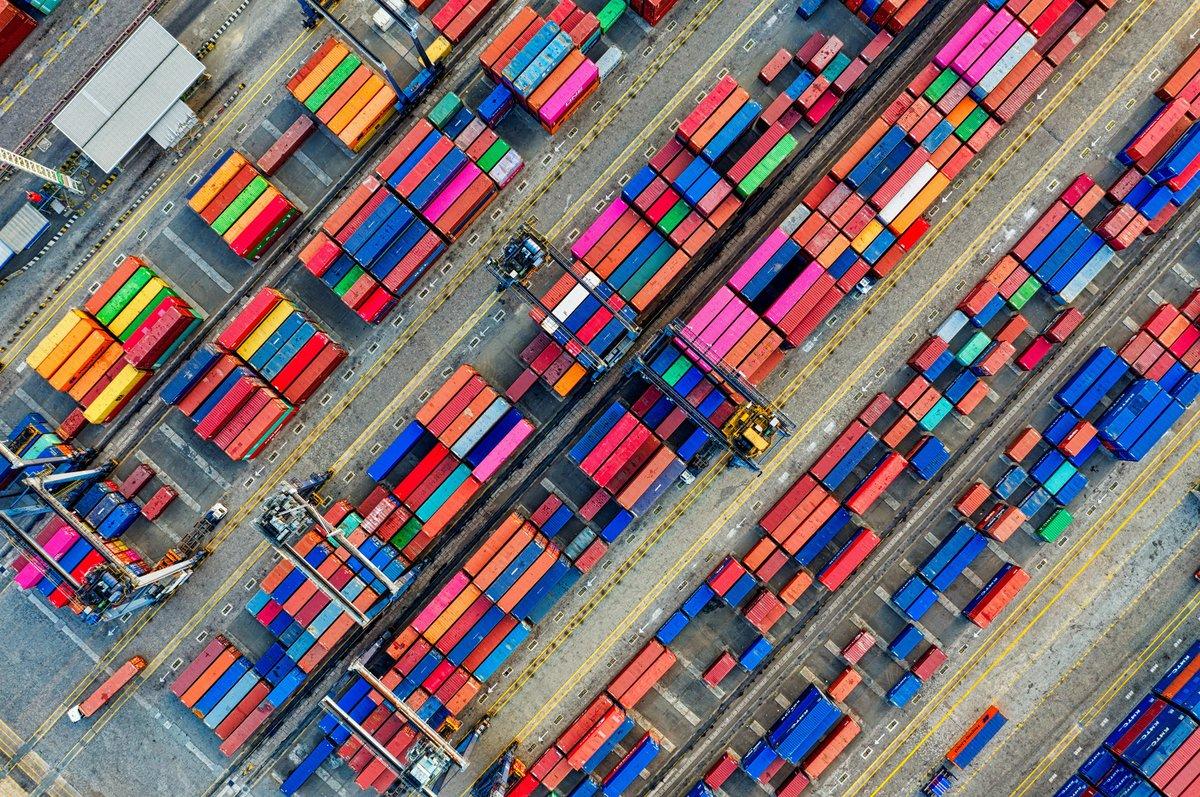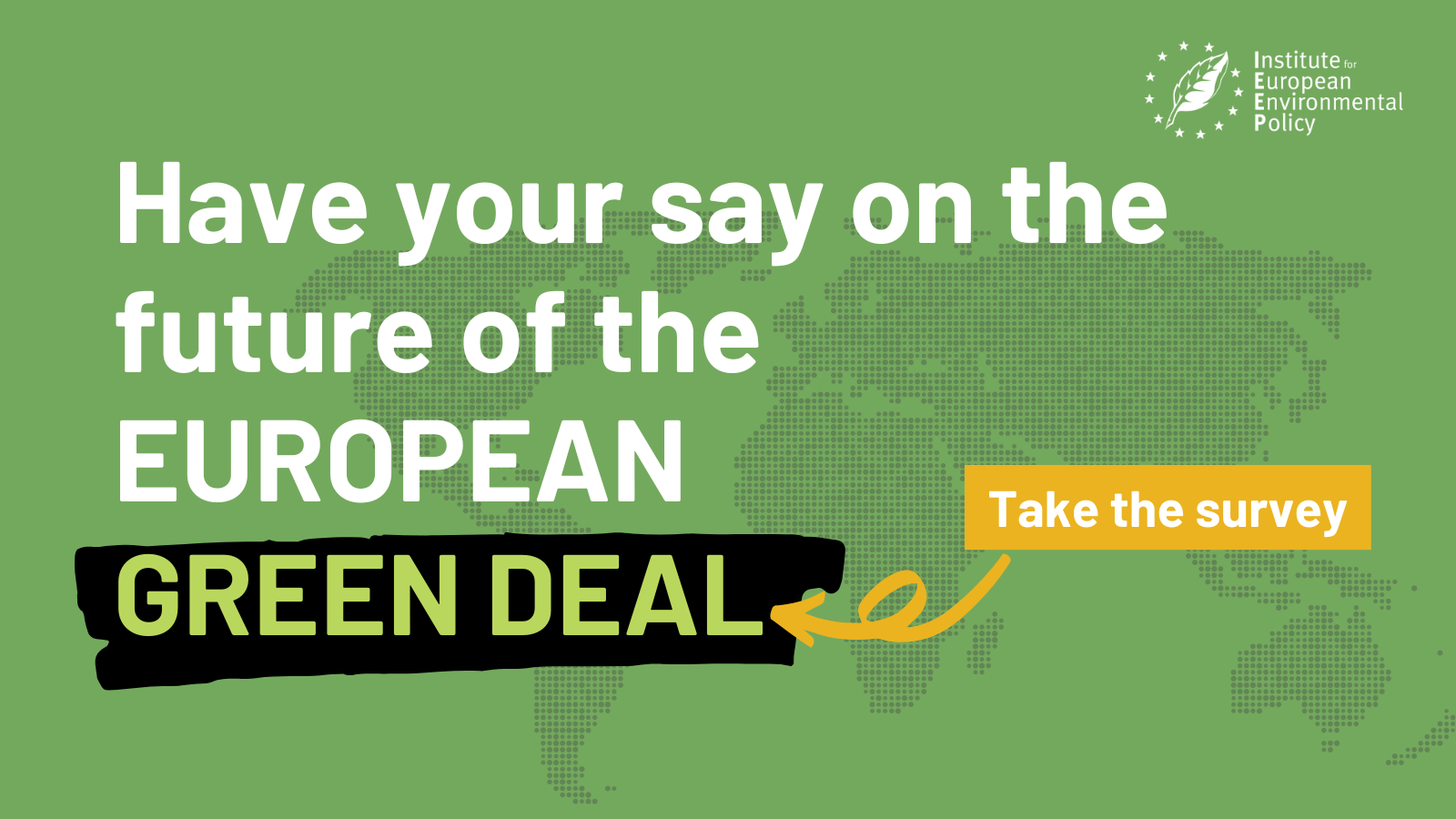Authors: Eline Blot, Céline Charveriat, Marianne Kettunen
IEEP has submitted feedback to the European Commission’s public consultation on the EU trade policy review, providing pathways on how to green trade, while supporting the EU’s recovery and delivering the EU’s commitment to the SDGs.
The objectives of the public consultation are to assess how trade policy can contribute to a swift and sustainable socio-economic recovery, and to see how trade policy can support EU’s “open strategic autonomy” and building up resilience to future challenges. The policy review will set the political direction for EU’s trade and investment policy in the years to come.
 IEEP’s response to the public consultation on the EU trade policy review (PDF 209 KB) IEEP’s response to the public consultation on the EU trade policy review (PDF 209 KB) |
IEEP welcomes the Commission’s commitment to consult with stakeholders on the direction of the EU’s trade and investment policy. While EU trade policy puts a great emphasis on trade being a vehicle for sustainable development, the existing evidence demonstrates that a net positive contribution of the EU trade to sustainable development – going beyond the economic and addressing also the environmental and social aspects – is as yet far from being achieved. Therefore, there is an urgent need to find ways to make EU trade and its impacts on global value chains more sustainable.
The public consultation covers various facets of trade policy. Therefore, IEEP’s submission focuses on those questions put forward by the consultation with the most pertinent links to the sustainability of EU trade and trade policy, and the related opportunities to support green recovery both in Europe and globally.
IEEP’s response covers a range of insights on how trade policy can help improve the EU’s resilience, promote the SDGs as well as transparent, responsible and sustainable supply chains, and facilitate the transition to a greener, fairer and more responsible economy. It also considers how the multilateral trade framework (i.e. WTO) should be strengthened, how to successfully promote international regulatory cooperation, and how the EU can better cooperate with its trade partners in a mutually beneficial manner.
In general, IEEP emphasises the need for broad international cooperation with trade partner countries to promote sustainable supply chains as well as to transition to greener and more responsible trade globally. Not only should the EU aim to champion these aspects in the WTO trade diplomacy context, but the EU should also seek to improve the sustainability of global trade through the implementation of EU policy, e.g. through the elevation of environmental standards as part of its trade and trade-related policy instruments.
| The EU has a number of avenues through which it can promote sustainable trade |
The EU has a number of avenues through which it can promote sustainable trade in the EU and global context. For example, the EU can start cooperating with like-minded trade partners that have demonstrated willingness to take forward sustainable trade agendas, such as Canada, China, Japan, and members of the African Circular Economy Alliance (Cote d’Ivoire, Ghana, Nigeria, Rwanda and South Africa) and the Agreement on Climate Change, Trade and Sustainability (Costa Rica, Fiji, Iceland, New Zealand, Norway and Switzerland).
Other avenues to promote sustainable trade using existing EU trade policy instruments include the review of EU’s Generalised Scheme of Preferences (GSP) Regulation scheduled for 2021 and the EU Aid for Trade (AfT) scheme. The GSP provides an opportunity to put more focus on assisting the beneficiaries of the EU scheme in elevating their standards pertaining to sustainable goods and promote sustainable trade by reviewing current trade rules that may hamper the development and export of green goods.
The AfT scheme provides targeted assistance to EU trade partners with the aim of maximising development-related benefits of trade. This includes technical assistance for trade regulations and standards which could effectively contribute to greening trade by supporting trade partner countries in finding solutions for sustainable global value chains and facilitating trade in products and services based on sustainable circular practices.
Harnessing the above trade-related opportunities will support sustainability and climate action by promoting resource efficiency and the circular economy, encouraging responsible production and consumption in- and outside the EU, and ensuring development cooperation that is sustainable in the long term and building global partnerships rooted in sustainability. All these actions will support sustainable socio-economic recovery, EU’s “open strategic autonomy” and resilience to future challenges, while simultaneously helping to deliver the EU’s commitment to the SDGs.
Read IEEP’s full submission for in-depth answers to the questions put forth in the public consultation.
More info
IEEP’s response to the European Commission’s public consultation drew from a number of papers – references within – Kettunen, Davey, Bodin, Gionfra & Charveriat (2020), Kettunen, Gionfra & Monteville (2019), Charveriat & Deere-Birkbeck (2020), Nanni, Allen, Bowyer & Kettunen (2020), Blot, Kettunen & Charveriat (2020a), Blot, Kettunen & Charveriat (2020b) and Blot, Schefer, Kettunen & Charveriat (2020).
The response was compiled and submitted by Eline Blot, Céline Charveriat and Marianne Kettunen. For more information on IEEP’s work on this area, please contact Marianne Kettunen (mkettunen@ieep.eu).
 | This work has been produced with the financial support of the LIFE Programme of the European Union. It reflects only the views of the authors. |



